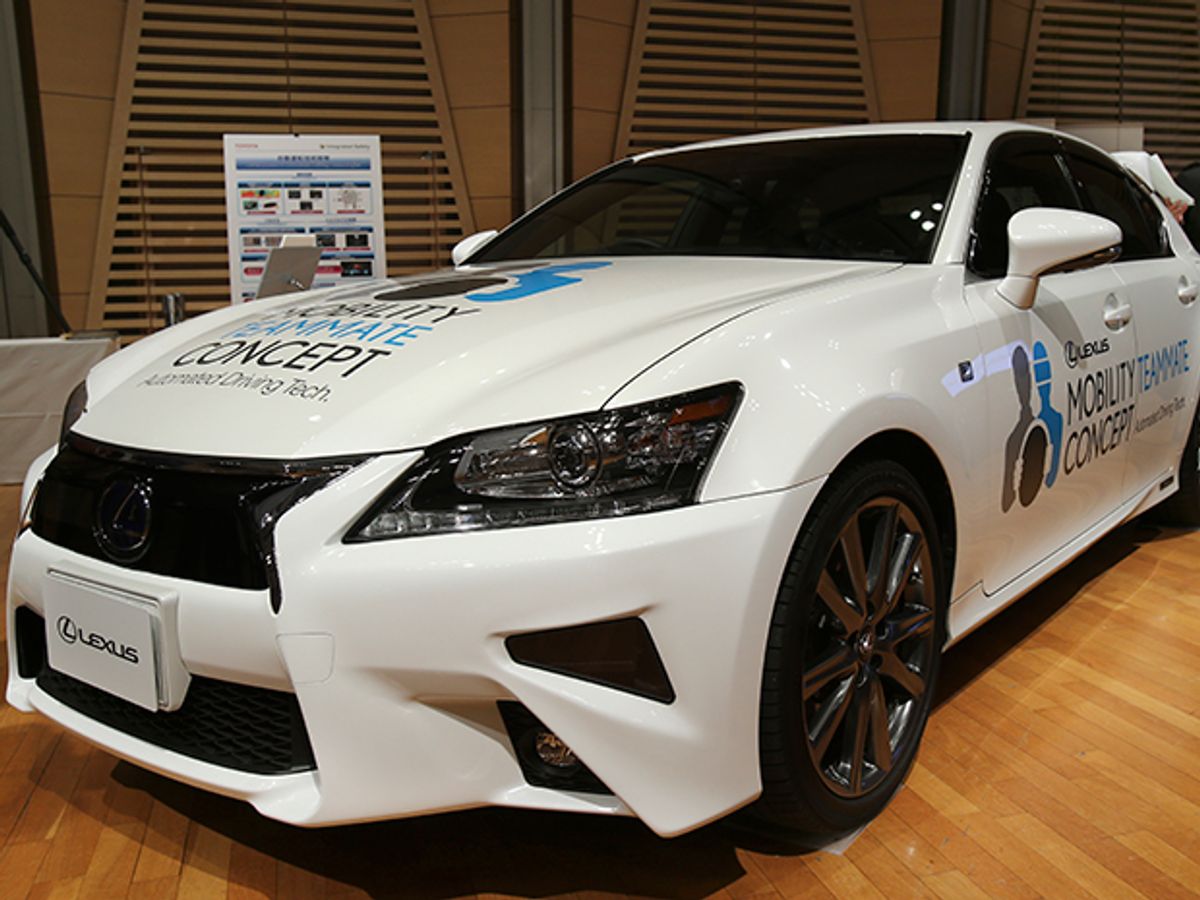Silicon Valley giants such as Google may appear to have seized the wheel of self-driving car technology in recent years. But Toyota, the world’s largest automaker, has just gone public with its own plans to make some cars capable of autonomous highway driving by 2020.
Toyota has generally taken a more cautious approach to self-driving cars by emphasizing that they will assist rather than replace drivers, according to the Wall Street Journal. The automaker named one of its prototype self-driving cars “Highway Teammate” and until recently preferred to call its system “advanced driver support” rather than “automated driving.”
But Toyota officials also told the Wall Street Journal that they don’t believe their car company has fallen behind Silicon Valley in developing robot cars. They pointed out that Toyota has already spent two decades studying autonomous driving technology.
While the automaker is gearing up for the out-of-the-park hit that is a fully autonomous vehicle, it planning to load the bases with singles, doubles, and triples in the form of a wide array of semiautonomous driving technologies that could end up in mass-market cars within the next few years. Fully autonomous driving for mass-market cars may not become a reality until the costs of all the self-driving sensors goes down, Toyota officials said.
Toyota’s preparations include forging ahead with big investments in talent and resources to advance its AI and robotics. It recently hired Gill Pratt, a former manager for the U.S. Defense Department’s Advanced Research Projects Agency; Pratt led the DARPA Robotics Challenge. (For more, see this IEEE Spectrum interview with Pratt on his Toyota career plans.)
Neither Silicon Valley nor the car industry has been shy about recruiting talent from the other side in the race for autonomous vehicles. For example, Toyota previously announced a $50 million R&D collaboration with MIT and Stanford aimed at making both smart vehicles for the roads and robot helpers for people’s homes. In September, Google hired auto industry veteran John Krafcik, an engineer with a successful track record of leadership at car companies such as Ford and Hyundai.
Jeremy Hsu has been working as a science and technology journalist in New York City since 2008. He has written on subjects as diverse as supercomputing and wearable electronics for IEEE Spectrum. When he’s not trying to wrap his head around the latest quantum computing news for Spectrum, he also contributes to a variety of publications such as Scientific American, Discover, Popular Science, and others. He is a graduate of New York University’s Science, Health & Environmental Reporting Program.



